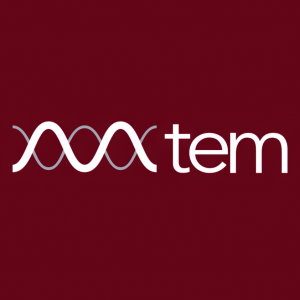Molecular Templates Presents Interim Data from MT-6402 Phase I Study in Patients with PD-L1+ Solid Tumors at the 2024 American Association for Cancer Research (AACR) Annual Meeting; Monotherapy Activity in Checkpoint-Experienced Head and Neck Cancer Patients Observed Through Novel Immuno-oncology Mechanism
AUSTIN, Texas, April 09, 2024 (GLOBE NEWSWIRE) -- Molecular Templates, Inc. (Nasdaq: MTEM, “Molecular Templates,” or “MTEM”), a clinical-stage biopharmaceutical company focused on the discovery and development of proprietary targeted biologic therapeutics, engineered toxin bodies (“ETBs”), to create novel therapies with potent differentiated mechanisms of action for cancer, today announced that MTEM will present a poster, “First-in-human, dose escalation and expansion study of MT-6402, a novel engineered toxin body (ETB) targeting PD-L1, in patients with PD-L1 expressing relapsed/refractory advanced solid tumors: Interim Data,” at the 2024 American Association for Cancer Research Annual Meeting taking place in San Diego, CA, and also announced monotherapy response activity in Head and Neck Cancer.
The poster highlighted the following findings from the phase I dose-escalation study of MT-6402:
- MT-6402 has been well tolerated with no drug-related Grade 4 or Grade 5 adverse events observed
- MT-6402 acts uniquely from other approved checkpoint agents. MT-6402 depletes immunosuppressive PD-L1+ immune cells and tumor cells, activates a T-effector phenotype, and remodels the tumor microenvironment to restore T-cell surveillance of the tumor.
- An early monotherapy efficacy signal in head and neck squamous cell carcinoma (HNSCC) was identified. Nine patients with recurrent and metastatic heavily pre-treated and checkpoint-experienced HNSCC were treated in the phase I dose escalation of which two patients have confirmed durable PRs.
- 2 of the 9 patients with HNSCC treated with MT-6402 showed confirmed partial responses (one response was unconfirmed at the time of the poster’s submission but has subsequently been confirmed). The patients remain on study at cycles 19 and 10, respectively (one cycle = 4 weeks), demonstrating the potential for durable monotherapy activity with MT-6402.
- Both patients had low PD-L1 tumor expression and had progressed after multiple lines of therapy including checkpoint. Additionally, both patients showed unique pharmacodynamic effects consistent with tumor microenvironment remodeling including reduction in myeloid derived suppressor cells (MDSCs) and modulation of VEGF.
- Tumor reductions were observed in other patients including an unconfirmed PR.
“We are excited to see objective responses in heavily pre-treated, checkpoint-experienced, head and neck cancer patients, a setting with high unmet medical need,” said CEO Eric Poma. “The long-lasting partial responses were in patients with low PD-L1 expression and showed concomitant increases in cytokines associated with T-cell activation and tumor microenvironment remodeling not seen with other checkpoint therapies. We believe the novel mechanism of action of MT-6402 may allow for durable, T-cell-mediated, monotherapy activity in patients who have progressed on checkpoint therapy. Based on the preliminary signals of single agent activity with MT-6402, an expansion study in low PD-L1 head and neck cancer patients to further evaluate MT-6402 has been initiated.”
AACR Presentation
Title: First-in-human, dose escalation and expansion study of MT-6402, a novel engineered toxin body (ETB) targeting PD-L1, in patients with PD-L1 expressing relapsed/refractory advanced solid tumors: Interim Data
Location: Section 48, Poster #19, Abstract #CT191
Date/Time: 9am – 12:30pm PT Tuesday, April 9, 2024
The abstract will be available in the Presentations section of MTEM’s website.
About Molecular Templates
Molecular Templates is a clinical-stage biopharmaceutical company focused on the discovery and development of targeted biologic therapeutics. Our proprietary drug platform technology, known as engineered toxin bodies, or ETBs, leverages the resident biology of a genetically engineered form of Shiga-like Toxin A subunit to create novel therapies with potent and differentiated mechanisms of action for cancer.
Forward-Looking Statements
This press release contains forward-looking statements for purposes of the Private Securities Litigation Reform Act of 1995 (the “Act”). Molecular Templates disclaims any intent or obligation to update these forward-looking statements and claims the protection of the Act’s Safe Harbor for forward-looking statements. All statements, other than statements of historical facts, included in this press release, including, but not limited to those regarding strategy, future operations, the Company’s ability to execute on its objectives, prospects, plans, future clinical development of the Company’s product candidates, any implication that the preliminary results, interim results, or the results of earlier clinical trials or ongoing clinical trials will be representative of the results of future or later clinical trials or final results, the potential benefits, safety or efficacy and any evaluations or judgements regarding the Company’s product candidates, [the results of any strategic process which are inherently uncertain at the present time] and future execution of corporate goals. In addition, when or if used in this press release, the words “may,” “could,” “should,” “continue”, “anticipate,” “potential”, “believe,” “estimate,” “appears”, “expect,” “intend,” “plan,” “predict” and similar expressions and their variants, as they relate to Molecular Templates may identify forward-looking statements. Forward-looking statements are not guarantees of future performance and involve risks and uncertainties. Actual events or results may differ materially from those discussed in the forward-looking statements as a result of various factors including, but not limited to the following: the continued availability of financing on commercially reasonable terms, whether Molecular Templates’ cash resources will be sufficient to fund its continuing operations; the results of MTEM’s ongoing clinical studies and the ability to effectively operate MTEM, and those risks identified under the heading “Risk Factors” in Molecular Templates’ filings with the Securities and Exchange Commission (the “SEC”), including its Form 10-K for the year ended December 31, 2023 and any subsequent reports filed with the SEC. Any forward-looking statements contained in this press release speak only as of the date hereof, and Molecular Templates specifically disclaims any obligation to update any forward-looking statement, whether because of new information, future events or otherwise.
Contacts:
grace.kim@mtem.com








